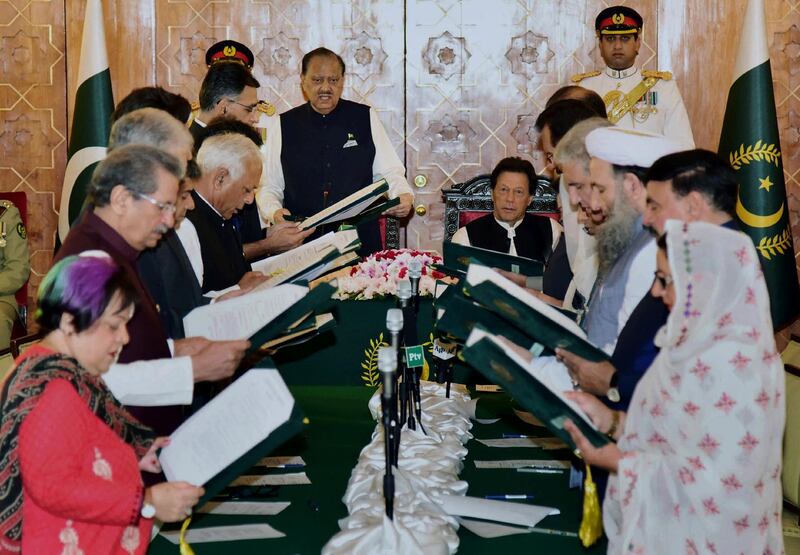It is, sadly, somewhat rare for politicians to live by the example they urge others to follow. But in his first, stirring address to the nation on Sunday, Pakistan's new prime minister Imran Khan promised to do just that. He spoke inspiringly of a new Pakistan, evoking a self-reliant nation founded on the pillars of democracy, equality, justice, tolerance and financial prudence – starting with himself. Gone are the ministerial entourage of 524 staff and the 113 cars that embody the profligate waste of Pakistan's former hierarchy. Instead, he said, he would keep just two of each and auction off the cars to put money back into the state treasury. "On one hand, we don't have money to spend on our people," he said. "On the other hand, we have a section of our people living like our colonial masters used to live."
Just four days into his tenure, he is already leading by austere example. His proposed reforms are far-reaching and wide-ranging, from reducing Pakistan's debt burden of $229 billion to slashing one of the world's highest infant mortality rates, getting 25 million illiterate children into schools and taxing the rich to redistribute the wealth. Pakistan, he exhorted, should be following the example of the Arab world in building a powerful nation and the Scandinavian model for healthcare, education and justice for all. The challenges ahead of him are huge and he is not without his naysayers, who were quick off the draw. "Imran Khan has promised the heavens but does not have a compact strategy," bleated former interior minister Ahsan Iqbal.
Yet Mr Khan's shortcomings are also his greatest asset. He has no formal political experience but his statesman-like approach has been years in the making. Nor is he shackled to the self-serving dynasties that have hampered development for so long. Some will dismiss his opening gambit as crowd-pleasing theatre but as prime minister, he is wise to set the tone from the outset. It will, of course, take time to effect the bigger, institutional changes necessary to transform Pakistan into the fair and progressive society Mr Khan envisages. But for the sake of momentum, it is important that he follows up his early symbolic gestures with meaningful reforms sooner rather than later. Targeting wasteful government spending is merely the overture to an ambitious programme of objectives, including tackling money laundering, corruption and extremism and raising the standard of living for all.
Mr Khan has already made a start in tackling a 71-year-old thorn in Pakistan's side: its tense relationship with India. Yesterday he tweeted that dialogue was the way forward, adding: "Without peace our people cannot progress." He has many battles ahead, not least how to manage a powerful and entrenched military establishment. But the former international cricket star has opened well. As he says: "We are in this together and we will find a way out together." The world will be waiting to see if he can deliver on the promises he has made.





